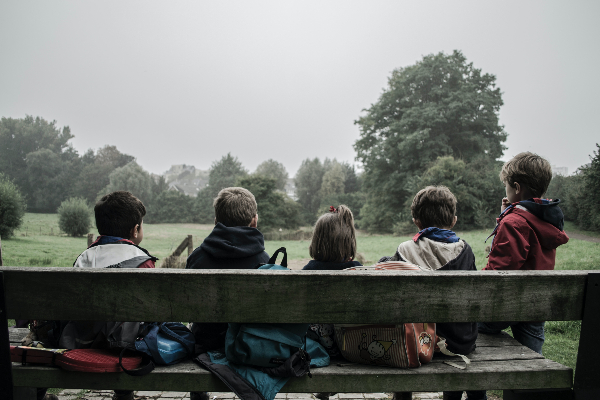Staying Connected and Sane during the Shelter-in-Place

The spread of the coronavirus is asking a lot from families, from homeschooling and work from home schedules to quarantine mandates and social distancing. It is a lot for families, parents and children to handle. This week, I talked to HITN Learning about strategies that parents can use to cope during these challenging times. You can access the video here (conversation starts at 2:08) or keep reading for a summary of the main take-aways.
Take care of yourself during these difficult times. As parents, we tend to think about our children’s needs first. It is natural to want to protect them and make sure they are safe. However, we know that we are going to be at home with them for a while, so we need to pay attention to our own needs, so we can be available to them in the long term.
- Name your emotions. When we feel anxious, we probably want to retreat and protect ourselves. When we are scared, it is because we detect danger. Emotions are data—they provide important information about what’s happening inside. Put a name to your emotions, so you can consider them with more clarity. When you name your emotions, you create the necessary space to navigate them effectively.
- Find something to “fill your bucket,” every day. Take time to do something you enjoy—exercise, dance to a favorite song, read a book or do nothing for a few minutes. Do something that will help you get the energy and positivity that you need in order to face the next day.
- Show yourself some compassion. Allow yourself to have a bad day. If that happens, treat yourself with compassion the way you would treat a good friend. Talk to yourself with kindness, and acknowledge everything you are doing to keep things running during these challenging times.
Orchestrate space and people with harmony. One of the main challenges that parents are facing is how to organize and supervise homeschooling, while responding to their own job responsibilities.
- Set up a homeschooling schedule. Kids thrive on routine, and do much better when they know what is expected of them. Create a daily schedule, so kids have a sense for how they day is going to be organized. Make sure kids have plenty of time to play!
- Keep a regular routine for meals, bedtime and exercise.
- Check-in at the end of the day with your children and ask them how things are going. If certain things are not working, ask them for suggestions.
- Schedule quiet time for everybody in the family. This includes the adults too—no social media, cleaning or doing work during that time.
Create moments of connection. Connection is an important aspect of building resilience, so make sure you have moments to connect with your children and spouse or partner.
- Find moments to do something just for fun with the entire family.
- Knowing that tension will arise, make sure you communicate more with your spouse or partner, not less, during this difficult time.
- Check in with loved ones, and allow the kids to call their friends.
- Keep the communication open with your children about what’s happening with the coronavirus.
- Be mindful of your consumption of social media. Is it making you feel more connected to people? If the answer is not, consider reducing its usage.
Show compassion towards yourself and others around you. Everybody is trying to adjust to this new situation, and we are all functioning with high levels of stress and anxiety. Treat others with kindness—including your child’s teachers, your employees and/or supervisors, cashiers at the grocery store. Everybody with a face can benefit from our kindness.
Until next time, please stay home and take care of yourself. And if you need any additional support, get in touch.
Subscribe to the HEART in Mind Newsletter
Research-Based Strategies for your SEL Toolbox









